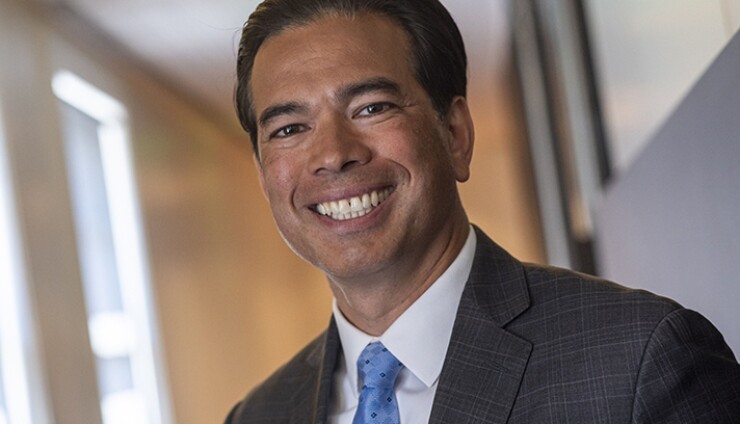
LOS ANGELES— Two California Assembly leaders announced hearings starting Feb. 19 to seek ways to close the $71 billion funding shortfall in the California State Teachers' Retirement System.
It is estimated that the $181.1 billion defined benefit plan that is the sole source of retirement for the state's teachers will run out of money by 2046, said Assemblyman Rob Bonta, D-Alameda.
Teachers do not contribute to Social Security and as a result are not eligible for the federal benefit, Bonta said.
CalSTRS estimates an additional $4.5 billion in contributions is needed to prevent the fund from running out of money by 2046,
Bonta, chair of the Assembly Public Employees, Retirement and Social Security Committee, and Assembly Speaker John Perez, a Los Angeles Democrat, made a joint announcement regarding the hearings at a Wednesday press conference.
Unlike the California Public Employees Retirement System, which can dictate contribution rates to government employers, the contribution rate for CalSTRS is set by the state legislature and the governor, Bonta said.
Perez advocated a solution of shared responsibility between school districts, the state and teachers to reach a 100%-funded pension fund.
The Assembly will pursue a solution to the CalSTRS shortfall this legislative session, Perez said, adding that further delay only means further cost and further exposure to the state's general fund. Gov. Jerry Brown, earlier this month, estimated it would take at least a year to find a solution.
"It is another sign of our progress and fiscal responsibility that we have taken California to a place that it is no longer issuing IOUs and can deal with the debt not yet coming due," Perez said.
Bonta introduced Assembly Bill 611 last year to help close the shortfall. The bill was passed by the Assembly, but returned to the retirement committee for amendments.
Bonta said he hopes to reintroduce the bill with further amendments resulting from solutions uncovered during the hearings.
CalSTRS Chief Executive Officer Jack Ehnes issued a statement supporting the legislature's efforts to close the funding shortfall.
With costs rising by $22 million a day, Ehnes said having a plan in place as early as this year could result in billion-dollar savings to the state.
For some time CalSTRS has stated that the solution is a gradual, predictable increase in contribution rates, fair to all parties involved, Ehnes said.
State Controller John Chiang and State Treasurer Bill Lockyer supported the hearings and urged a speedy resolution in statements.
"Speaker Perez and Assemblyman Bonta are spot-on in calling for immediate action and shared sacrifice in addressing CalSTRS' unfunded liability gap during the coming year," said Chiang, a member of the governing board of CalSTRS.





